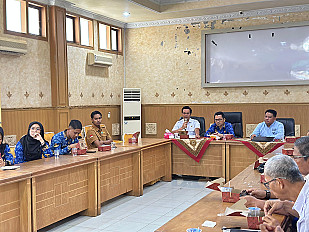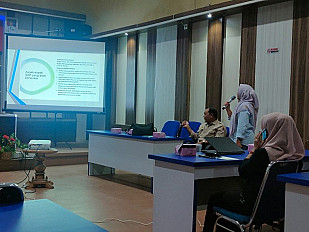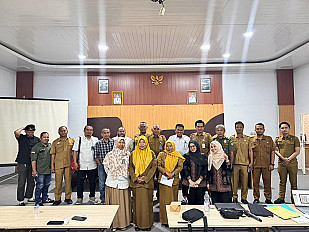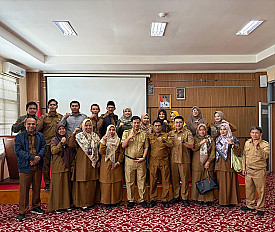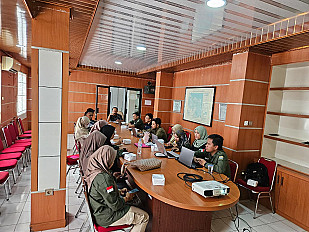News
The Rise of Green Spirit in Nyogan Village: Innovations and Challenges of the Karya Abadi Farmers Group

Portal BIOCF
Monday, 26 May 2025 Post 12:05 AMMuaro Jambi – Amidst the growing trend of sustainable agricultural development, Nyogan Village in Mestong District, Muaro Jambi Regency, has become a shining light in efforts to increase the productivity of smallholder crops. Through a program from the Jambi Province Food Crops, Horticulture, and Livestock Service (TPHP), the Karya Abadi Farmers Group received concrete support to increase its capacity in animal feed and compost processing.
Training and Equipment Assistance: The Beginning of Change
In the 2024 fiscal year, the TPHP Service held a Technical Guidance (Bimtek) for members of the Karya Abadi Farmers Group. This training provided not only knowledge but also practical skills on how to process animal feed into silage, as well as how to utilize livestock and plantation waste to create organic compost.
In addition to training, this group also received assistance with facilities and infrastructure, including a granulator, a cultivator, forage seeds such as odot and indigofera, and various other supporting equipment. With this support, the farming group began producing feed and compost for their own needs and those of the surrounding community.
From Waste to Fertilizer: Innovation Amidst Limitations
After participating in the technical guidance, group members were able to independently process livestock waste (manure, urine, leftover feed) and plantation waste (palm fronds and waste) into compost and forage for livestock. While compost production is still small-scale, it is sufficient to meet the group's needs and is sold in limited quantities to the village community.
Strikingly, the quality of the compost produced was tested at the Jambi Ministry of Agriculture's BSIP soil laboratory. The results were quite good, although the nitrogen (N) content was found to be low—an element that is crucial for the growth of oil palms, which are widely cultivated in the area.
Field Challenges: Livestock Diseases and Lack of Raw Materials
Despite showing progress, the Karya Abadi Farmers Group's journey has not been without obstacles. One serious problem is the dwindling livestock population. From an initial 12, only two remain. Diseases such as scabies and Jembrana are the main causes of livestock deaths.
Furthermore, the lack of permanent pens in surrounding villages makes collecting livestock manure for compost difficult. Without an adequate waste supply, compost production is hampered.
As a solution, the group is trying to innovate by using solid factory waste as an alternative raw material. This method has been used twice, but it faces challenges in mobilizing oil palm fronds, which requires proper transportation.
Seedlings Not Growing Optimally: Dry Season a Barrier
Other efforts to support animal feed production, such as planting odot grass and indigofera, have also not been optimal. Seedling assistance provided during the dry season resulted in very low germination rates—only around 30% for odot, while indigofera almost completely dried up.
The Way Forward: Further Support Needed
Despite facing a number of obstacles, the enthusiasm of the farmers in Nyogan Village remains high. They have demonstrated that with proper training and adequate tools, waste processing can become a productive resource that supports local agricultural and livestock activities.
However, to maintain sustainability, additional support is needed in the form of:
- Preventive livestock health care,
- Assistance with collective pens to facilitate waste collection,
- Improving seed distribution times according to the planting season,
- And logistical support for raw material mobilization.
Nyogan Village is proof that when farmers are equipped with the knowledge, tools, and mentoring, they can become agents of change for sustainable agriculture—even though the path they take remains challenging.
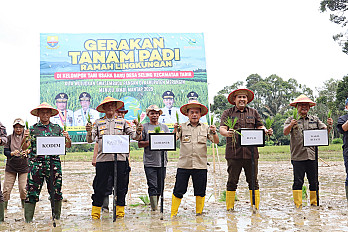
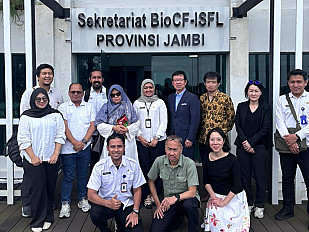
-thumb.jpg)
